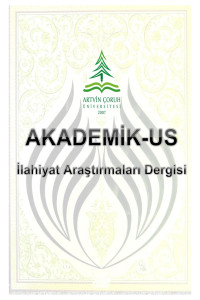Rivals in the Gulf: Yusuf al-Qaradawi, Abdullah Bin Bayyah, and the Qatar-UAE Contest Over the Arab Spring and the Gulf Crisis
Öz
The book examines the influence of scholars on the foreign policy of the emirate of Qatar and the United Arab Emirates. As a scholar, Yusuf al-Qaradawi has considerable sway in shaping Qatar's foreign policy during the Arab Spring period. In this effect, the relationship between Al Thani royal family in Qatar and Yusuf al-Qaradawi stretches back decades to the early 1960s and 1970s. The relationship between the en-Nahayân family, which ruled the united Arab Emirates, and Abdullah bin Bayyah is similar. The approaches of Yusuf al-Qaradawi and Abdullah bin Bayyah to the Arab Spring process have been different from the very beginning. Yusuf al-Qaradawi, who supported the popular movements in the Arab Spring process with the hope that he would bring democracy to Islamic countries, supported his position with verses and hadiths. Abdullah bin Bayyah stated that Islamic countries were not yet ready for democracy. He drew attention to Muslims could also hit an iceberg like the Titanic and lose their existing rights. The book contains comparative examples showing the drawbacks of decontextualizing verses and hadiths and using them to interpret current political developments.
Anahtar Kelimeler
Kaynakça
- David H. , Warren. Rivals in the Gulf: Yusuf al-Qaradawi, Abdullah Bin Bayyah, and the Qatar-UAE Contest Over the Arab Spring and the Gulf Crisis. New York: Routledge, 2021.
Ayrıntılar
| Birincil Dil | Türkçe |
|---|---|
| Konular | Din Araştırmaları |
| Bölüm | Kitap Tanıtımı |
| Yazarlar | |
| Yayımlanma Tarihi | 27 Aralık 2022 |
| Gönderilme Tarihi | 13 Eylül 2022 |
| Kabul Tarihi | 11 Aralık 2022 |
| Yayımlandığı Sayı | Yıl 2022 Cilt: 6 Sayı: 2 |
Akademik-Us Dergisi Creative Commons Atıf-GayriTicari 4.0 Uluslararası Lisansı ile lisanslanmıştır.


